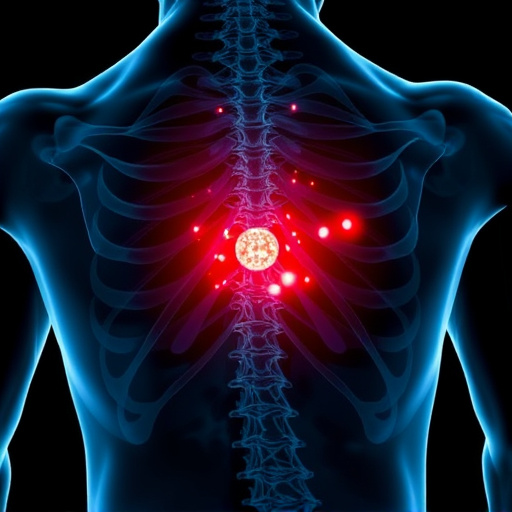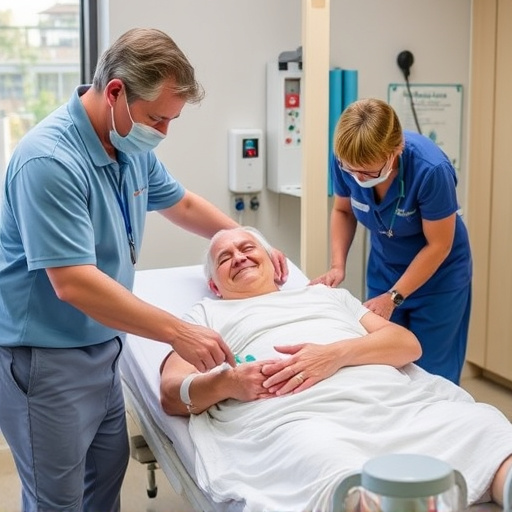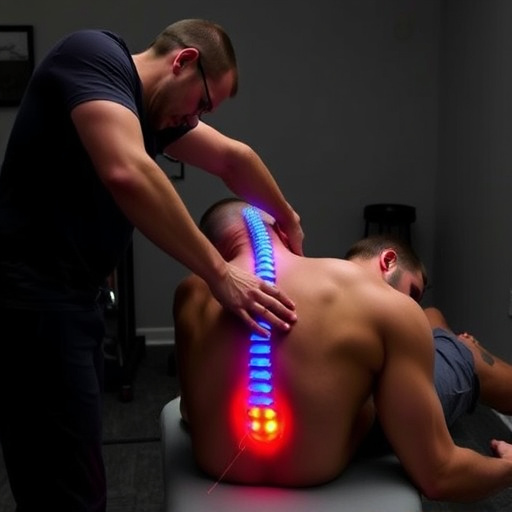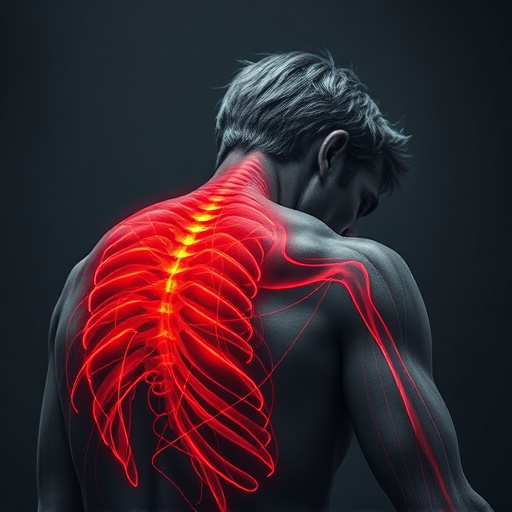Early diagnosis in car accident injury care is crucial for effective treatment and improved outcomes. Timely intervention allows healthcare professionals to address injuries like whiplash, spinal trauma, and internal damage through tailored plans. Delays can lead to chronic health issues complicating rehabilitation, emphasizing the importance of swift evaluation for comprehensive back pain relief and a smoother transition to active recovery, including sports activities. Early detection enables identification of visible and hidden injuries, such as soft tissue damage, preventing chronic pain and reduced mobility. Effective care coordination ensures tailored treatments like spinal adjustments and rehabilitation exercises for optimal health and functionality.
“In the aftermath of a car accident, timely diagnosis plays a pivotal role in the care and recovery process. This article delves into the significance of early intervention in managing car accident injuries, focusing on three key aspects. Firstly, understanding the immediate impact of timely diagnosis sets the stage for effective treatment. Secondly, early detection strategies significantly enhance patient outcomes. Lastly, navigating the care pathways ensures a structured approach to recuperation. By exploring these elements, we highlight the essential practices in optimizing car accident injury care.”
- Understanding the Impact of Timely Diagnosis
- Early Detection: Enhancing Treatment Outcomes
- Navigating Car Accident Injury Care Pathways
Understanding the Impact of Timely Diagnosis

The significance of an early diagnosis in car accident injury care cannot be overstated. Timely intervention plays a pivotal role in the recovery process for individuals who have sustained injuries in motor vehicle crashes. Prompt recognition and assessment allow healthcare professionals to develop effective treatment plans, targeting specific injuries like whiplash, spinal trauma, or internal damage. This is crucial as early care can prevent complications and promote better outcomes, including faster sports injury recovery for active individuals.
Delays in diagnosis can lead to heightened pain levels, reduced mobility, and long-term health issues, such as chronic back pain. Physical therapy and other rehabilitative measures become more challenging and less effective when treatment is deferred. In car accident injury care, every minute counts; a swift evaluation enables medical experts to offer the best chance at comprehensive back pain relief and a smoother transition towards active recovery, including sports-related activities if applicable.
Early Detection: Enhancing Treatment Outcomes

Early detection plays a pivotal role in enhancing the outcomes of car accident injury care. When victims seek medical attention promptly after an incident, healthcare professionals can accurately diagnose and address both visible and hidden injuries. Many car accidents result in soft tissue injuries that might not be immediately apparent. These include sprains, strains, and contusions which, if left untreated or improperly managed, can lead to chronic pain and reduced mobility. Early detection allows for timely intervention using various treatment modalities like chiropractic care, ensuring a faster recovery process.
Additionally, prompt diagnosis enables healthcare providers to offer specialized treatments for specific conditions, such as sciatica, that may arise from car accident injuries. Efficient management of these initial stages can prevent the progression of injuries and significantly improve overall patient outcomes in car accident injury care.
Navigating Car Accident Injury Care Pathways

Navigating the complex landscape of car accident injury care requires a thorough understanding of the available pathways and options. Following a collision, individuals often face immediate physical and emotional challenges. The initial step involves assessing the extent of injuries, which can range from minor bumps to severe trauma. This critical phase demands prompt attention to ensure appropriate treatment for conditions like whiplash, back pain relief, and other common car accident-related ailments.
Effective care management entails coordinating with healthcare professionals, including chiropractors, physiotherapists, and medical specialists. A well-coordinated approach facilitates tailored treatments such as spinal adjustments, rehabilitation exercises, and medication to address specific injuries. This holistic navigation ensures that patients receive comprehensive support throughout their recovery journey, aiming for optimal health and functionality.
Early diagnosis is a cornerstone in the realm of car accident injury care, significantly enhancing treatment outcomes. By promptly understanding and navigating the complex landscape of injuries, healthcare professionals can provide targeted interventions, ensuring better patient recovery. Through effective early detection, the care pathways for car accident victims become more efficient, ultimately improving their overall well-being and quality of life post-injury.














